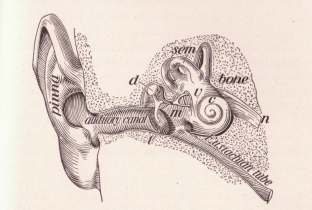There is silence all around, but something is constantly buzzing and whistling in your ears? At first, this did not interfere with life, but the ringing in the ears and head is growing and all attention is focused only on finding out the cause of this noise? Can't stand the noise in your head? Depression sets in and life becomes unbearable? The presence of such thoughts is explained by the development of tinnitus, as a symptom of many diseases that can only be revealed by a full diagnosis and medical supervision. Even with the slightest noise in the ears or head, you should immediately contact an ENT doctor to conduct a diagnosis.
What is tinnitus: symptom or disease
Specialists say that ringing in the ears and head alone cannot be a disease, it is most likely the initial symptom indicating a specific disease. Tinnitus is referred to in the medical literature as tinnitus. It can be subjective or objective. Objective noise in the ears and head is heard not only by the patient, but also by the doctor during the examination. No one can hear a subjective ringing, it is a sound inside the head, perhaps due to circulatory disorders and other processes in the brain. In fact, more than 50% of humanity can hear tinnitus from time to time, which then goes away or comes back again with great force. The ringing may be in only one ear, or in both, and there may also be noise in the head. Tinnitus can increase and cause maximum discomfort, leading to stress, headaches, depression, even insanity. This ringing can be described as a monotonous sound or from the category of complex ones: whistling, buzzing, rustling, wheezing, ringing of a bell, sea surf, murmur, fluttering of wings, music.

What does ringing in the ears and head lead to
There are a number of reasons that can cause noise and ringing in the head and ears:
- blood flow becomes turbulent: when blood vessels narrow, it is difficult for blood to pass through the obstruction, which leads to an increase in blood pressure (cause: the presence of cholesterol plaques);
- disturbance of the transmission of nerve impulses in the ear canal, which reduces hearing and it may seem that there are other sounds than external ones;
- Violation of the functioning of the vestibular apparatus, so the noise may appear when turning the body;
- failures in the work of the cardiovascular system provoke brain hypoxia, and as a result, the appearance of a brain tumor that causes noise;
- individual structure of the hearing aid;
- side effects while taking medications (cardiovascular, antidepressants, anti-inflammatory drugs);
- sound perception can be deformed with age, so tinnitus is often heard at an advanced age.
Ringing in the ears can occur in case of such diseases: kidney failure; diseases of the heart and blood vessels; avitaminosis; osteochondrosis; traumatic brain injury; brain tumor; stroke and heart attack, meningitis; Meniere's syndrome; malfunctions of the thyroid gland; VSD, otitis media, hypotension; diabetes; atherosclerosis; neuritis; anemia; disruption of the nervous system, schizophrenia. Even the most harmless wax plug can cause tinnitus.
Diagnosis and treatment of ringing in the ears and head
It is impossible, according to the patient, to immediately find out the cause of tinnitus, it is necessary to conduct laboratory tests. To begin with, general blood and urine tests are prescribed, followed by an MRI, an audiogram, angiography of blood vessels, and a hearing test. The threshold of audibility of the patient is determined according to his words, the general state of human health is determined, whether the noise is associated with an inflammatory process, the presence of pathology in the brain.
How to treat ringing in the ears and head
Initially, silence should be avoided, because in such an environment, hearing becomes sharper and if our hearing aid does not find the sound perception of the world, it begins to look for sounds inside. Noise and buzz in the ears are not treated on their own, all efforts are aimed at eliminating the initial disease, and only then the perception of sound is improved by "noise-suppressing" drugs. The doctor, in addition to the main treatment, prescribes drugs to improve blood circulation in the brain, antihistamines, psychotropic and anticonvulsant drugs, as well as psychostimulants. If your hearing begins to disappear along with the noise, you should wear a hearing aid.






Add a comment